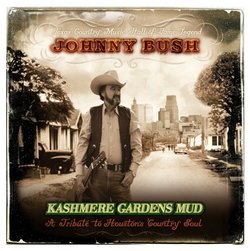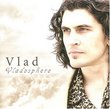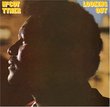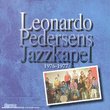| All Artists: Johnny Bush Title: Kashmere Gardens Mud Members Wishing: 0 Total Copies: 0 Label: Icehouse Music Inc Original Release Date: 1/1/2007 Re-Release Date: 3/6/2007 Album Type: Enhanced Genres: Country, Pop Styles: Roadhouse Country, Classic Country Number of Discs: 1 SwapaCD Credits: 1 UPC: 879261000148 |
Search - Johnny Bush :: Kashmere Gardens Mud
 | Johnny Bush Kashmere Gardens Mud Genres: Country, Pop
Johnny Bush's place in the country music pantheon has been secured. Inducted into the Texas Country Music Hall of Fame in 2003 by his longtime friend Willie Nelson. Loyal fans and a new generation of honky-tonk traditional... more » |
Larger Image |
CD DetailsSynopsis
Product Description Johnny Bush's place in the country music pantheon has been secured. Inducted into the Texas Country Music Hall of Fame in 2003 by his longtime friend Willie Nelson. Loyal fans and a new generation of honky-tonk traditionalists regard him as one of the finest country voices to come out of Texas. Similar CDs
|
CD ReviewsEpic album that will be praised for years to come joe don | texas | 03/11/2007 (5 out of 5 stars) "Johnny Bush is one of the top ten country singers of all time period. Now that you have gotten over the shock of that statement accept the fact that its true. There is only one Johnny Bush and if it werent for the fact that Johnnys voice in the early 70's went out on him due to a rare condition this would be commonly accepted. Johnny is back big time and this album is so fantastic I cant begin to explain. I consider myself an expert on country music and this one blasts everything out of the water that comes out of slicksville (nashville) today. This is the one to own this year buy it." This CD reinforces Johnny's solid place in Texas' classic co Joseph Ross | Roseburg, OR USA | 03/11/2007 (5 out of 5 stars) "Playing Time - 51:29 -- John Bush Shinn III was born in 1935 in an "unforgiving land north of the bayou" called Kashmere Gardens in Houston, Texas. With a stained memory that still lingers in his blood, "Kashmere Gardens Mud" is the musical accompaniment to Johnny Bush's biography. The song make reference to his parents' divorce when he was just seventeen, and in 1952 he began his musical career at the Texas Star Inn in San Antonio. While the salvo written by Bush seems weak for the album's opener, it sets the stage for some grooving music that taps his honky-tonk, blues, western swing, big band, Cajun and even mariachi influences. The album shows that Bush's setbacks in life haven't slowed him down. About the time of this album's release, Johnny's autobiography ("Whiskey River (Take My Mind): The True Story of Texas Honky Tonk" co-written with Rick Mitchell) is scheduled for publication by the Univ. of Texas Press. While Bush may not have the vocal range he used to, the album serves as a powerful "tribute to Houston's country soul" by tapping classic country standards like Moon Mulligan's "I'll Sail My Ship Alone" and Townes Van Zandt's "Pancho and Lefty" with a stellar cast of Texas musicians such Bobby Flores, Johnny Gimble, Bert Wills, Jesse Dayton, Calvin Owens Blues Orchestra, Frenchie Burke, Buddy Emmons, Brian Thomas, Floyd Domino and others. There's plenty of steel guitar and fiddle throughout, shining with luster over the rhythm foundation of guitar, bass and drums. I especially enjoyed the orchestral arrangements of "Free Soul" and "Born to Lose," both recorded at SugarHill Studios in Houston. Bobby Flores and Shane Pitsch provide a mariachi intro to Dale Watson's "Tequilla and Teardrops," that also includes Watson's vocalizing. Two songs (Pancho and Lefty, Send Me the Pillow That You Dream On) include Johnny's friend Willie Nelson. Coming off more like a front porch jam among a couple good ol' boys, the latter is a rawboned arrangement with just acoustic guitars and vocals. Johnny's affiliation with Willie goes back to the early-1960s when Bush played drums in Willie's band, The Record Men. Then, both guys worked in Ray Price's Cherokee Cowboys. The late Floyd Tillman also sings on his own composition, "They Took the Stars Out of Heaven." A few more background and harmony vocals would've enhanced the set. Eddie Noack's "These Hands" begins with an excerpt of the original 1955 recording by Smilin' Jerry Jericho. Johnny's hands may be getting calloused and aged, but his music still wins our hearts. Track 13, Johnny's self-penned "I Want a Drink of that Water" includes some unison singing with his brother, Rev. Gene Shinn. Track 14 is a reprise with instrumental snippets from all the songs on the album. Track 15, a 3-minute bluesy number, is a bonus that isn't even mentioned in the CD jacket. Once dubbed "The Country Caruso," Bush's biggest challenge in life first hit him in 1972 when he started to experience a tightness and raspiness in his voice. Being dropped by the RCA label and an addiction to Valium followed. Six years would pass before he was properly diagnosed with a rare condition called spasmodic dysphonia that causes the vocal cords to have uncontrollable spasms. His hit song "Whiskey River" (covered by Willie Nelson) brought regular income, and Bush also continued to perform. Radical exercise techniques helped him make a comeback with music. After a western swing project in 1994, he released a number of albums from 1998-2001. In more recent years, botox injections into the vocal cords have also helped him cope with spasmodic dysphonia. Like a chapter in a Steinbeck novel, the Texas Country Music Hall of Fame legend's life was changed forever years ago as a kid when he was first bitten by the bug to be a singer and performer. I get the impression that he's a fighter and refuses to throw in the towel...the type of affable guy who loves to be entertaining on stage. In fact, he's become a role model and inspiring mentor to younger musicians who can relate to his strong affinity for singing and performing. This album will only serve to reinforce his solid place in Texas' classic country music history. (Joe Ross, Roseburg, OR.) " A Career Album of Bush's Career hyperbolium | Earth, USA | 03/31/2007 (5 out of 5 stars) "Though Bush's commercial flame was doused by an early-70s vocal problem, his reputation remained strong. Key compositions, including "Whiskey River" and "There Stands the Glass," helped sustain Bush's legacy during his performing absence, but his presence was felt even when his songs weren't on the charts. His place in Texas honky-tonk, something he took up in the late '50s, has been referenced and quoted ever since.
Amazingly, after decades without a voice, new medical treatments have brought Bush back to the studio for this superb life retrospective. Recorded as an audio companion to an autobiography published by the University of Texas, the songs reflect on Bush's personal and musical lives, and the life of music in his native Houston. The sessions, recorded primarily at the legendary SugarHill Studio, pull together players and songs with a connection to the Bayou City, mixing new compositions with Houston linked classics. The fifteen tracks (fourteen listed, plus a bonus reworking of Mickey Gilley's 1956 rockabilly "Ooh Wee Baby," the original of which featured Bush on drums) are woven from several strong threads. Jesse Dayton and band (of nearby Beaumont) provide the backing for a pair of songs with a Mexicali edge: Dale Watson's "Tequila and Teardrops" (with Watson on harmony vocal) and a cover of "Pancho and Lefty" featuring a duet with one of Bush's earliest musical amigos, Willie Nelson. Nelson's "Bloody Mary Morning" features great picking from guitarist Dayton and his steel player, Brian Thomas. A second musical thread is the brass of the Calvin Owens Blues Orchestra, swinging through "Free Soul" and a sophisticated arrangement of the classic "Born to Lose." Owens' trumpet solo introduces a scorching guitar lead from Dayton on "Free Soul," providing crossover between the two sessions. Bush dips further into Willie Nelson's catalog for one of the writer's earliest successes, "Family Bible," and the pair duet live (with Nelson's characteristic gut-string guitar as accompaniment) on "Send Me the Pillow That You Dream On." Bush also duets with Floyd Tillman (shortly before his passing in 2005) on the light western swing of "They Took the Stars Out of Heaven." This is a multidimensional project, knitting together newly produced recordings with a few earlier sessions, mixing new compositions like the superb title tune with country classics, and interspersing guest vocalists and backing bands. And just like a fine quilt, you can gaze upon the detail of a single patch, or step back and marvel at the beauty of the whole. This is a superb statement from a country legend whose artistic vision survived decades without a voice. [©2007 hyperbolium dot com]" |

 Track Listings (14) - Disc #1
Track Listings (14) - Disc #1

